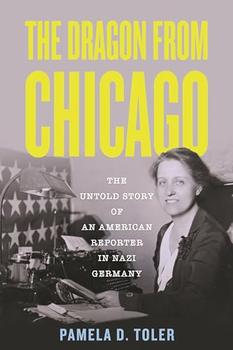Book Club Discussion Questions
Want to participate in our book club? Join BookBrowse and get free books to discuss!
Please be aware that this discussion guide will contain spoilers!
-
"Schultz was an American—more specifically, an American from Chicago—by birth, self-definition, and loyalty, but she was raised in France and Germany and educated in European schools" (xi). How did Schultz's multinational identity and upbringing serve her journalism?
-
Schultz made a name for herself in journalism during a time when women were often denied a comprehensive education, much less the opportunity to pursue a career. How did societal attitudes towards women impact Schultz's journalism? What actions did she take to overcome sexist prejudices and limitations?
-
When Schultz spoke out against concentration camps, General Hermann Göring fired back "Schultz, I've always suspected it: you'll never learn to show the proper respect for state authorities" (xiii). How did knowing when and how to disrespect authority prove a valuable action in both Schultz's career and the wartime she covered? Have you ever intentionally challenged authority? If so, to what results?
-
What economic and sociopolitical factors in Germany during the period described seemed to enable the rise of fascism and the Nazi party? Can you identify any parallels in other historical or contemporary situations?
-
When Schultz was struggling to "get an interview or find an unusual angle on a story," she often took "a backdoor approach," (50) finding a creative way to tackle the issue. What are some examples from the book where Schultz employs her characteristic cleverness and persistence? Have you ever taken a similar "backdoor approach" to problem-solving?
-
While reporting on the rise of Hitler's regime, Schultz persisted with covering Nazism despite facing severe censorship, formal threats of expulsion from the German Foreign Office, and death threats from von Papen supporters and Hitler himself (104). How do these experiences display journalism's political power? Is protecting a free press important?
-
Consider Schultz's reporting on the 1936 Berlin Olympics. How did her coverage of these games expose Nazi Germany's propaganda tactics and the regime's underlying militaristic ambitions?
-
How did the development of radio networks in the 1920s and 1930s impact reporting? Discuss the transition from "readers" to listeners in news broadcasts. Can you think of any modern developments in reporting that have comparably altered the media landscape?
-
Taking on roles as a war correspondent, lecturer, potential government employee, and, later, an argumentative author, Schultz wore many hats during WWII. How did each of her roles serve her career and showcase a commitment to her work?
-
How did Schultz's feelings toward the Nazis and the atrocities she witnessed influence her coverage of the Nuremberg trials and her reporting in general? Did her strong personal convictions hinder or help her journalism?
-
Schultz's reporting is referenced in historical accounts of the rise of the Nazis and early 20th-century American journalism. How does her work contribute to our understanding of this period? Why might her contributions be less well-known compared to those of her male counterparts?
-
Today, war correspondent journalism remains one of the most dangerous journalistic occupations. A 2022 Veterans Affairs study found the lifetime prevalence rate of PTSD in war journalists was 28.6%, and the lifetime prevalence rate of depression was 21.4%. After finishing this book, has your perspective on or appreciation for the danger and importance of this work changed?
Unless otherwise stated, this discussion guide is reprinted with the permission of Beacon Press. Any page references refer to a USA edition of the book, usually the trade paperback version, and may vary in other editions.
